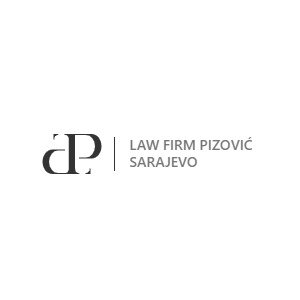Best Hiring & Firing Lawyers in Sarajevo
Share your needs with us, get contacted by law firms.
Free. Takes 2 min.
List of the best lawyers in Sarajevo, Bosnia and Herzegovina
About Hiring & Firing Law in Sarajevo, Bosnia and Herzegovina
In Bosnia and Herzegovina, labor laws govern the relationship between employers and employees, including hiring and firing practices. The relevant laws protect workers' rights and outline specific obligations for employers. These laws ensure fair treatment in hiring, define employment contracts, and establish legitimate grounds for termination. Understanding these regulations is vital for avoiding legal pitfalls and ensuring compliance, whether you're an employer making hiring decisions or an employee facing termination.
Why You May Need a Lawyer
Legal advice can be crucial in various scenarios related to hiring and firing in Sarajevo, Bosnia and Herzegovina. Common situations where a lawyer's guidance may be necessary include:
- Drafting employment contracts to comply with local laws.
- Handling disputes related to wrongful termination or unfair dismissal.
- Understanding collective labor agreements and their implications.
- Interpreting legal obligations related to health, safety, and workplace discrimination.
- Negotiating severance packages and other termination-related disputes.
- Representing employers or employees in cases of workplace harassment or discrimination allegations.
Local Laws Overview
In Sarajevo, labor legislation is defined by the national employment laws, which apply to employers and employees in both public and private sectors. Key aspects include:
- Fixed-term and open-ended contracts, with specific provisions regulating their use.
- Mandatory employment rights, including the right to paid leave and the right to work in a safe environment.
- Notice periods and severance pay for termination, outlined by both statutes and collective agreements.
- Anti-discrimination policies ensuring fair treatment regardless of ethnicity, gender, religion, or other protected characteristics.
- Regulations regarding probation periods and their conditions.
Frequently Asked Questions
What are the legal requirements for drafting an employment contract in Bosnia and Herzegovina?
An employment contract must be in written form and include terms such as job description, salary, working hours, and employment duration. It must comply with the Labor Law to be enforceable.
Can an employer terminate an employee without cause?
No, employers must provide a legitimate and spelled-out reason for termination, such as poor performance, redundancy, or misconduct.
How long is the typical notice period for termination?
The notice period varies depending on the employee's length of service but generally ranges from two weeks to three months.
Are there any protections against wrongful termination?
Yes, employees can challenge wrongful termination in court, and they may be entitled to compensation or reinstatement if their claims are proven.
What are the probation period rules?
Probation periods are typically limited to six months, during which the employment relationship can be more freely terminated by either party.
How are overtime regulations handled?
Overtime work requires employee consent and must be compensated at a higher rate than regular hours, as stipulated by the labor laws or collective agreements.
What is the role of labor unions in hiring and firing?
Labor unions negotiate collective agreements that can provide additional rights and protections for employees beyond statutory minimums.
Are there specific rights for pregnant employees?
Pregnant employees have special protections, including the right to maternity leave and protection from dismissal during their pregnancy and maternity leave.
Can an employee be fired for discriminatory reasons?
No, dismissals based on characteristics such as race, gender, or religion are legally prohibited.
What legal steps can be taken in case of employment disputes?
Disputes can be resolved through mediation, arbitration, or litigation in labor courts, depending on the nature of the disagreement and the applicable laws.
Additional Resources
For additional support, consider exploring the following resources:
- The Ministry of Labor and Social Policy of the Federation of Bosnia and Herzegovina: Offers guidance on employment laws and worker rights.
- Local labor unions: Provide assistance and advice regarding collective agreements and workplace issues.
- Legal aid organizations: Offer support for individuals who need legal representation but cannot afford private counsel.
Next Steps
If you need legal assistance in hiring or firing matters, consider taking the following steps:
- Consult with a legal expert specializing in labor law to understand your rights and obligations.
- Gather all relevant documents, such as employment contracts, performance reviews, and any communications related to the dispute.
- Consider informal resolution methods such as mediation before pursuing formal legal action.
- If necessary, engage a qualified attorney to represent your case in court.
By carefully navigating the legal landscape, both employers and employees can protect their interests and ensure compliance with hiring and firing regulations in Sarajevo, Bosnia and Herzegovina.
Lawzana helps you find the best lawyers and law firms in Sarajevo through a curated and pre-screened list of qualified legal professionals. Our platform offers rankings and detailed profiles of attorneys and law firms, allowing you to compare based on practice areas, including Hiring & Firing, experience, and client feedback.
Each profile includes a description of the firm's areas of practice, client reviews, team members and partners, year of establishment, spoken languages, office locations, contact information, social media presence, and any published articles or resources. Most firms on our platform speak English and are experienced in both local and international legal matters.
Get a quote from top-rated law firms in Sarajevo, Bosnia and Herzegovina — quickly, securely, and without unnecessary hassle.
Disclaimer:
The information provided on this page is for general informational purposes only and does not constitute legal advice. While we strive to ensure the accuracy and relevance of the content, legal information may change over time, and interpretations of the law can vary. You should always consult with a qualified legal professional for advice specific to your situation.
We disclaim all liability for actions taken or not taken based on the content of this page. If you believe any information is incorrect or outdated, please contact us, and we will review and update it where appropriate.











